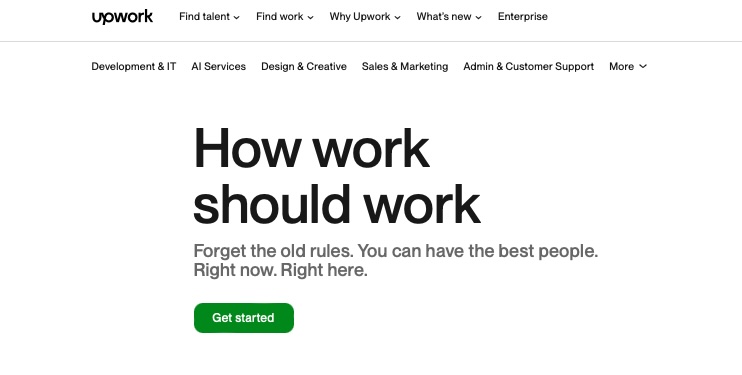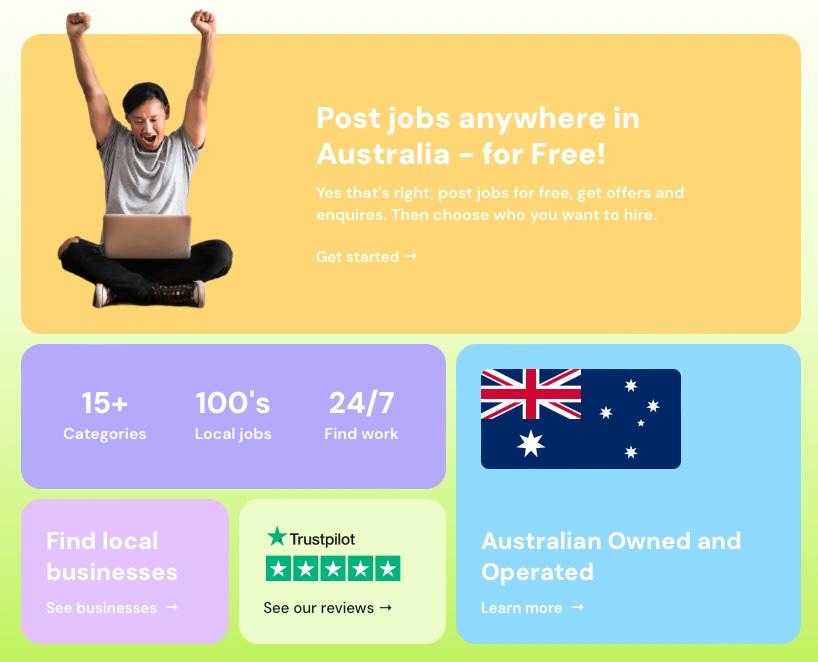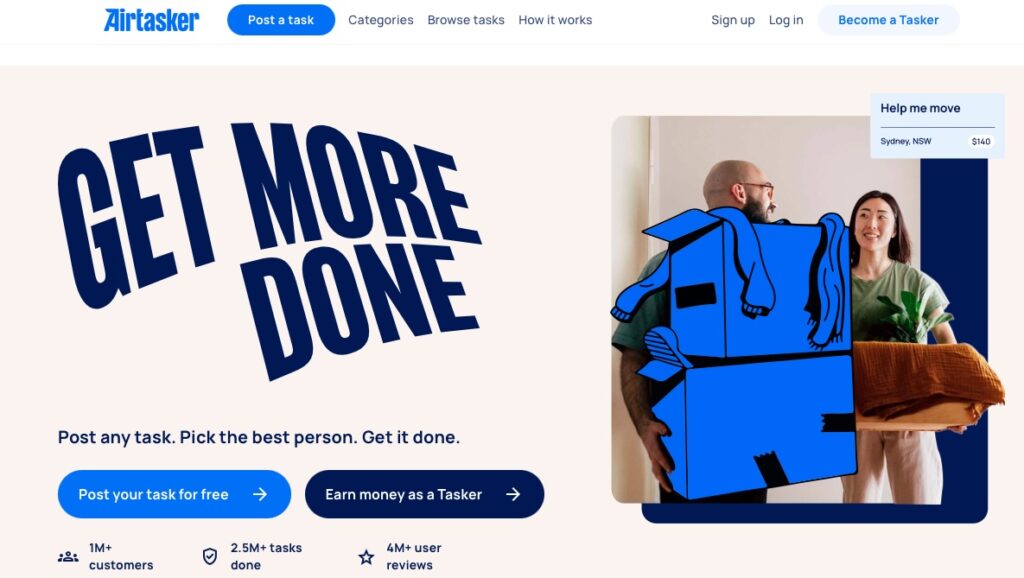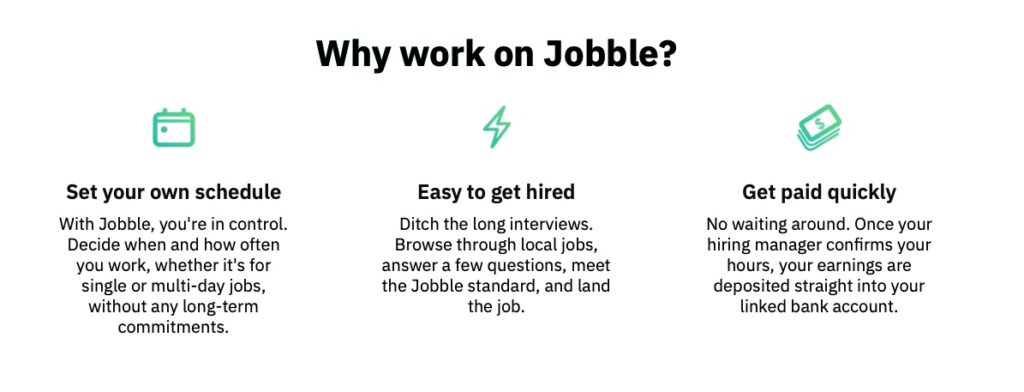I am sure many do wonder about finding work on a platform.
Especially those who are keen to manage their own time and work independently. Others when they find themselves between jobs. There are also those new to the country and need to get their foot thru the door for quick local experience.
Not forgetting those keen to become entrepreneurs and looking for leads to kick-start their new planned business.
Lastly foreign students looking to pay for their tuition fees and living expenses while completing their studies. And this is something we all see on a daily basis especially in the food delivery business.
Lifestyle change and remote working
Lifestyle change, looking for the proverbial work-life balance is probably a strong motive. And the platform is an avenue to consider. The World has become interconnected via the internet. High speed broadband and working remote is no longer an exception. Remote working is now a mainstream option.
Working remotely does not just mean working from home rather than the office.
It also includes relocating away even to a different city or country. In most cases it is working outside the usual commuting distance from the office. In a farm, a mountain retreat and for Adelaide, the Adelaide Hills or the Barossa Valley. Or even a different state or country.

For those in Sydney and Melbourne, a move to a quieter city is a consideration. To raise a family, build a more affordable house of their dreams or run a hobby farm while working remotely.
The meaning of life-work balance is something to ponder. Especially when technology and the gig economy opens options to continue earning an income stream. I guess it can also means a “first world problem”, getting that balance right.
Platforms & platform work
It will be a good start to define what a platform is and what platform work and platform workers mean.
Both terms are generally new but what the definition is now well accepted in the evolving gig economy. These entities are fast followers of the ride hailing sector kick started by the likes of Uber and Lyft. This is close to 15 years ago.
Platforms are online and app based portals created to match workers to work, job, assignment and gigs sought by clients. It works both ways. Clients who maybe private individuals, a small firm or a big corporation looking for someone to do a work assignment.
That assignment can range from short duration work to even routine daily work. It can be paid by the hour or a lump sum on completion. For such clients unexpected or unplanned demand calls for resourcing at short notice. And these platforms are the answer. It can also lead to permanent employment within a short period and the person no longer works with a platform but becomes an employee. But introduction was the result of going into a platform in the first place.
Central to the gig economy, independence remains one of the primary motives attracting people to the gig economy. An aspiration.
The concept of a job exchange
The platform is relatively simple in concept, a job exchange.
If you accept work thru such a portal you become a platform worker. Though many prefer to call themselves freelancers, independent contractors or an entrepreneur providing a service. Not matter what, they are self-employed. They can accept or reject the offer or negotiate terms and scope of work.
The term platform and platforms workers were coined by various governments for legal reasons to define this new paradigm. The intention was to enact laws and regulations to protect them. As they are no longer classified as employees. This despite many do the work that is no different to an employee.

One clarification though. These platforms are not the conventional recruitment or employment agencies which are common place.
Conventional recruitment agencies continue to facilitate conventional employment. These are places where you submit your CV to look for a job or you respond to an opening. These entities continue to remain and provide a valuable service to employers and potential employees. More important for jobs and careers that require permanency and significant regulatory or legal accountability.
Here is an earlier post on platform workers.
Where do it I find these platforms?
The most well known are probably Upwork and Fiverr. Mainly tech related but they also cover all other types of work opportunities. From graphic designs to hiring musicians for gigs.
Other portals tend to focus on certain sectors or niche areas. Such as cleaning homes, pet sitting, home cooking, teaching to tuitions.
Besides Upwork and Fiverr, we have Airtasker, Jobble, Task Rabbit, Thumbtack, Tiny Jobs, Oneflare, Fancy Hand and others. One way to find more is goggle for alternatives to well known ones. So google “Airtasker alternatives”,and more options do come appear.

First steps in getting on board
Start by shortlisting portals that focus on your area of desired work including their geographic focus. It is important that you avail yourself to the largest catchment pool possible.
Read thru the terms and conditions as they are very different to a recruitment agency. These conditions include how you engage with potential clients such as not releasing your emails or contact details to them. This is to avoid bypassing the portal in order to avoid paying them their fees or commission. Also understand how payment and commissions apply.
Some have escrow services to protect the service providers (which is you) usually for tech jobs. Some who seek services can be difficult when it is time to make a payment. Arguing about the scope of work after completion is quite a common issue for both parties.
There are also steps to complete to go up the reputation ladder so clients are aware of your quality in time and are prepared to engage you and even pay more.
Bear in mind that any breech might lead to suspension or ban. Never a good thing as you have lost the ability to reach a pool of potential clients or even clients who you have previously worked with. Remember getting from a popular portal is never a good idea.

One good portal to start with if you not in the tech stream is Airtasker. They have scale, reach and a presence.
Key points to note
Create a professional looking bio of yourself, your experience and your skillset. It must have the “wow” factor to catch attention.
Explain why you are the best suited to handle a particular area of work. This is where to invest time and effort in researching what a good bio looks like and how others pitch in platforms.
Prepare scope of work templates that you can readily provide the potential client at first contact so they know you are organized and ready to deliver.
State clearly any exclusions and if you provide revisions. It is common to have at least one revision even though you have completed 100% of the agreed scope of work. Clients do seek some variations usually minor. It is something that helps you getting full points in the reputation ladder and also repeat business. I have seen many state two revisions.
Organise your calendar so you are able to manage your work and deliver in time to maintain your customer ratings. Be clear with your messaging on what you would do and by when. It will help when a dispute happens and the Platform steps in to mediate.
Be patient. It will take time to build a portfolio of work and your reputation. Do not accept work that you are not capable of delivering to a reasonable standard. Unlike a private contractor dealing with a client, the Portal will be involved in a dispute and your rating system will be affected.
To enter the market cold, you might have to offer lower or teaser rates to get initial work. You in turn get a reasonable understanding of market rates by browsing what others charge. You can also rely on forums created by the portal or other parties to raise with other portal workers. Its a good idea to register with other portals even if you using them for work to see their forum for guidance.
Lastly make allowance for demanding and difficult customers who might change their minds how the work is to done. Or even some who hold back payments. It is part of the risk of running your own show.
Fighting inertia
One of the hardest things is stepping forward even after you have been contemplating this avenue for sometime. Platform work has evolved so much that it much easier to step forward. Best advice is take baby steps, accept small and weekend assignments while keeping your day job. You can still walk away if you decide it’s not your cup of tea.
One interesting approach are those who do it to pass time on weekends for beer money. Writing and reviewing CVs, doing book reviews, ghost writing for blogs etc. Despite not planning to give up their day job, some end up making the switch. With this approach, you are ready in case you are let go or need to leave your day job.
